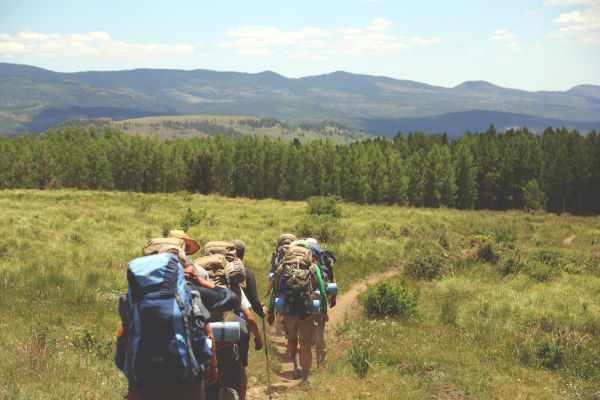Mountains are calling you
Hiking
Hiking allows not only contact with nature but also with our inner world, causing relaxation and tranquility while at the same time exercising the body. Although hiking is a hobby without age, race or physical limits, it would be good for every new hiker to prepare properly to avoid injuries and unpleasant situations, for this reason below are some useful tips.
Choose shorter and easier paths
It is important to start from an easy and well-marked route. We suggest that you avoid difficult and technical paths at first, which will bother you more than you expected and will discourage you from continuing. Always listen to your body and don't burden it.
Do your research and plan your route
Before you start it is important to do good research and plan your route, learn more about the route's difficulty and weather conditions, and inform yourself of any dangers or challenges you may face. In the beginning it is better to choose a hike with a professional guide or to join a hiking club. Hiking with a friend or joining a group of experienced hikers will make your experience safer as well as fun. More experienced hikers can provide support, guidance and share their knowledge with you.
Invest in the right equipment and clothing
The right equipment and clothing are essential for a comfortable and safe hike. Choose a durable pair of shoes that provide ankle support and moisture-wicking clothing. Don't forget to take a backpack with water, a first aid kit and a raincoat (the weather changes very quickly on the mountain, so prepare accordingly). Avoid unnecessary items that will weigh you down and make your hike more difficult. If you are going to cross a path with a big uphill, make sure you have climbing poles with you and you will save a lot of fatigue.
Prepare your body
A hike can be physically demanding, especially if you are not used to long distances or carrying your backpack for a long time. That is why it is good to include in your daily routine cardiovascular exercises, such as walking or cycling, to develop your endurance, but also strengthening exercises to strengthen your legs, torso and back muscles.
Remember your hydration and nutrition
Proper hydration and nutrition are vital during a hike. Carry enough water with you to hydrate often and avoid dehydration. Carry high-energy snacks such as nuts, dried fruit and energy bars to keep your energy levels up.
Respect nature and leave no trace
Make sure you leave no footprints and litter so you leave the natural environment as you found it. Respect the flora and fauna of the area, do not feed the wild animals and follow the designated paths. Always respect the mountain that hosts you! Hiking in nature is one of the best experiences you can give yourself.

 English
English
 Ελληνικά
Ελληνικά Русский
Русский
 Original Article Posted by
Spyros Papapetros
Original Article Posted by
Spyros Papapetros






